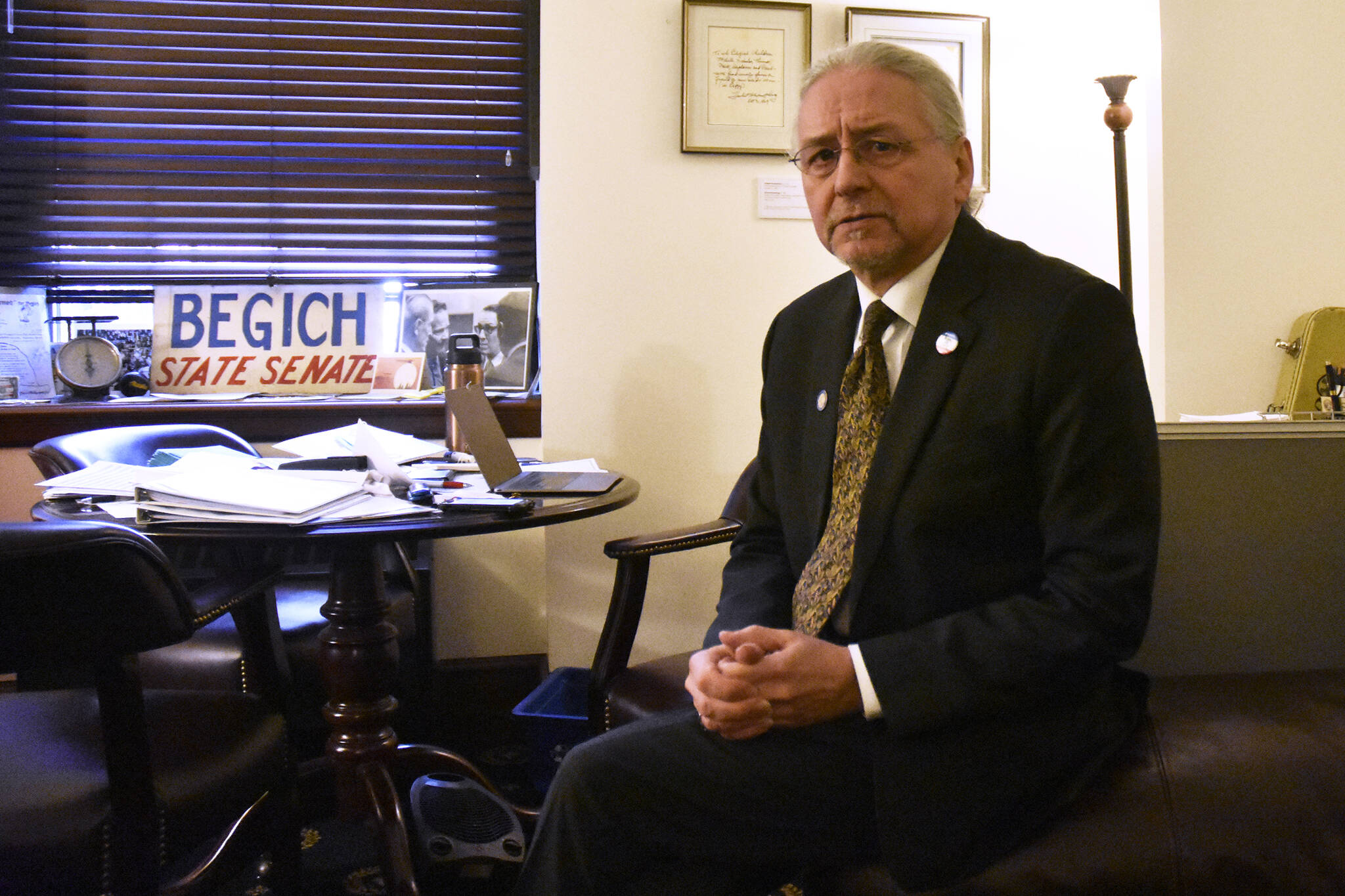The Alaska State Senate unanimously passed the Alaska Reads Act on Tuesday, a comprehensive education bill designed to increase the student reading outcomes by third grade.
“(Senate Bill 111) was not a rushed effort but used the last eight years of work,” said Sen. Roger Holland, R-Anchorage, chairman of the Senate Education Committee. “The result is a compromise that garners support from across the political spectrum.”
The bill would create three-year grants for school districts to establish pre-K programs, establish a screening and intervention process for students’ reading skills and offer additional financial support to struggling districts.
The Department of Education and Early Development would be required to assess the programs annually, and all the programs included in the bill would automatically end after 10 years.
If the bill is passed, the state will be required to hire and retain reading specialists, increase teacher training on reading instruction and provide a screening tool to help identify students who are struggling with reading. The bill allows for interventions strategies such as customized reading plans.
The bill would also allow the state to hold underperforming students back a grade, but allows for mid-year promotions if student performance increases.
The bill now heads to the House.
The Alaska Reads Act was originally introduced in 2020 — a joint effort between Senate Minority Leader Tom Begich, D-Anchorage, and Republican Gov. Mike Dunleavy — and creates several programs focused on improving reading. That bill wasn’t passed during the session and the bill had to be re-submitted in 2021, when a competing reading bill from Sen. Shelley Hughes, R-Palmer, was also introduced.
The two bills were eventually combined into the bill passed Tuesday which at the start of the Senate floor session was known as the Academic Improvement and Modernization Act. The only amendment to the bill was from Begich renaming the bill the Alaska Reads Act, which passed without objection.
Senators voted unanimously for the bill, though four members of the body were absent; Sens. Donny Olson, D-Golovin; Lora Reinbold, R-Eagle River; Bert Stedman, R-Sitka; and Natasha von Imhof, R-Anchorage.
[Local environmentalists call on Wells Fargo to end fossil fuel funding]
In an email, Dunleavy spokesperson Jeff Turner said the governor supports a reading bill and wants to see one passed this year.
“As you know, legislation can and does undergo substantial changes during the legislative process so he will wait to see the bill in its final form before deciding to sign it into law,” Turner said.
In an interview with the Empire, Begich said he was confident the governor would support the bill as passed by the Senate.
“I think that there’s a good chance that this bill could become law,” Begich said. “That completely depends on the actions of the (House of Representatives.)”
If the bill doesn’t pass the House before the constitutional end of the Legislative session in mid-May, the bill will have to be resubmitted and begin the committee process again.
In February, several members of the House and Alaska Native leaders, including Central Council Tlingit and Haida Indian Tribes of Alaska President Richard Chalyee Éesh Peterson and City and Borough of Juneau Assembly member Waahlaal Giidaak Barbara Blake, wrote an opinion piece in the Anchorage Daily News voicing concerns regarding the bill’s impacts in rural Alaska.
“Rather than punishing children for whom English may be a second or third language, or who come from families and communities oppressed and hurt by the Western education system, why not first determine if they receive the same quality of education at the ground level,” authors wrote.
But Begich said the bill was robustly culturally responsive and that he expected House members to amend the bill to address those concerns.
The bill comes with a price tag — costing $4 million in fiscal year 2024 before growing to $13.7 million in 2025 and continuing to grow — but lawmakers defended the cost by saying the spending had been targeted on students.
“The fiscal notes on this might raise a few brows, but this is money that is targeted on students,” Hughes said on the floor.
Contact reporter Peter Segall at psegall@juneauempire.com. Follow him on Twitter at @SegallJnuEmpire.

